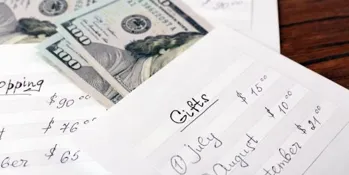- Quick Summary
- No or Little Interest Earned in Checking Accounts
- Increased Fraud Potential
- No Compound Interest
- No Account Opening Bonuses
- Access to Funds too Easy Makes for Frivolous Spending
- Money isn’t Always Safe if Your Bank Fails
- Checking Accounts Should be Fluid
- Missed Opportunities
- Conclusion
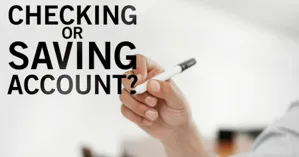
- Quick Summary
- No or Little Interest Earned in Checking Accounts
- Increased Fraud Potential
- No Compound Interest
- No Account Opening Bonuses
- Access to Funds too Easy Makes for Frivolous Spending
- Money isn’t Always Safe if Your Bank Fails
- Checking Accounts Should be Fluid
- Missed Opportunities
- Conclusion
You might have some extra cash that you parked in your checking account. Or you might have your paycheck direct deposited in your checking account. Regardless, you have over three thousand dollars sitting in it. But should it be there? Here are eight reasons you shouldn’t keep more than $3,000 in a checking account.
1. No or Little Interest Earned in Checking Accounts
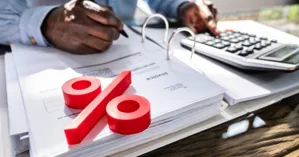
You won't earn much interest in a checking account. The national average for interest-bearing checking accounts is 0.07 percent APY. A high-yield savings account at an online bank can earn you as high as a 5.00 percent APY. Too much money in your checking will result in a loss. You’ll forfeit the opportunity to earn more.
2. Increased Fraud Potential

Fraud happens more with checking accounts than savings accounts. A thief could steal your debit card and drain your checking account balance. Scammers study account balances to find opportunities for fraud, especially targeting those with large balances. They’ll take your entire paycheck. And a large checking account balance attracts scammers both inside and outside the bank.
3. No Compound Interest
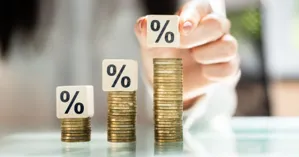
Compound interest occurs when the interest you earn in your savings also earns interest. Compound interest can add to your balance, therefore earning you more money. If you leave over 3,000 in your checking, you can’t take advantage of compound interest. You lose money.
4. No Account Opening Bonuses

Some banks offer lucrative bonuses just for opening an account. Some can be $200 or higher. If your money is sitting in the same checking account with a large checking account balance, you miss out on all that extra money. Maintaining a minimum balance in a new account is often required to qualify for these bonuses. Shop around for the best bonus and then move your money to that bank or credit union.
5. Access to Funds too Easy Makes for Frivolous Spending
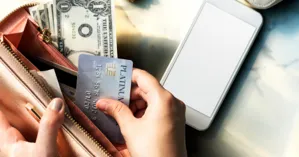
That debit card can get a workout sometimes, especially if you have excessive funds sitting in your checking accounts. Easier access makes frivolous spending more likely, as having funds readily available can lead to unnecessary expenses. A customer's checking account balance can significantly influence their spending behavior, with larger balances often resulting in more impulsive purchases. Taking the money out is psychologically harder if it’s in a savings account or CD. It’s just not as easy to access.
6. Money isn’t Always Safe if Your Bank Fails
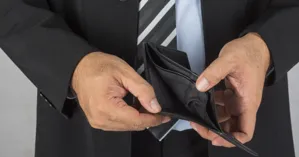
This one is for the financial heavy weights. If you keep more than $250,000 in your checking account, the amount above $250,000 isn’t covered by the FDIC if the bank fails. Not only shouldn’t you keep it in your checking account, but you also shouldn’t keep it in the same bank.
7. Checking Accounts Should be Fluid
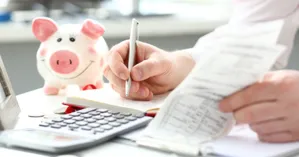
A checking account should be a conduit where money moves in and out. Excessive funds sitting in a checking account can raise questions about financial allocation. It’s not made to hold a lot of money. Allocate only what you really need to your checking account and keep the rest in a savings account or other financial product.
8. Missed Opportunities
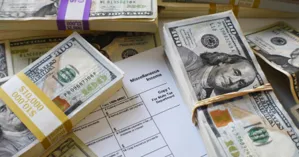
There are many ways you can use that money. Consider money market accounts as an alternative to keeping excessive funds in a checking account; they offer a combination of savings and checking account features, flexibility, FDIC insurance, and the ability to earn better interest compared to traditional savings accounts. There are investments like money markets, CDs, bonds, etc. You could also start an IRA to save for retirement. This makes your money work for you instead of just sitting there waiting to be spent.
Conclusion
Don't be tempted to keep over $3,000 in your checking account, just because you might need it. You risk being the victim of fraud and overspending. Instead, let your money work for you by using other financial products.



